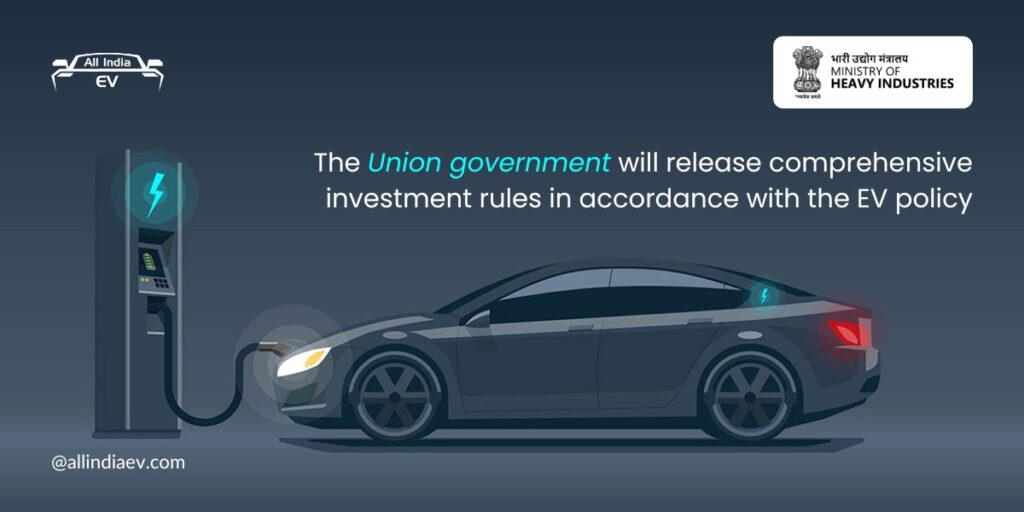
Union Government to Release Comprehensive Investment Guidelines for EV Policy
The Union government of India is actively developing comprehensive guidelines for companies interested in investing under the electric vehicle (EV) policy. According to an official, a second round of stakeholder consultations is expected soon, following an initial consultation held by the Ministry of Heavy Industries last month. The forthcoming guidelines will include detailed information on applications, portal links, and the Project Monitoring Agency (PMA).
Incentives and Requirements for Auto Firms
Auto firms in India can apply for incentives under the new policy by committing to the required investments. Companies already established in India do not need to register a new subsidiary to apply. The EV policy, approved by the government on March 15, offers duty concessions to companies setting up manufacturing units with a minimum investment of $500 million. The policy is designed to attract major global players like US-based Tesla.
Companies will have three years to establish manufacturing facilities and begin commercial production of EVs, with a requirement to achieve 50% domestic value addition (DVA) within five years. Firms setting up EV passenger car manufacturing facilities will be allowed to import a limited number of vehicles at a reduced customs/import duty rate of 15% for cars costing $35,000 and above, available for five years from the issuance of the approval letter by the government.
Stringent Scrutiny for Bordering Countries
Applications from auto companies based in countries sharing a land border with India will undergo more stringent scrutiny. This includes companies from China, Bangladesh, Pakistan, Bhutan, Nepal, Myanmar, and Afghanistan, which require mandatory government approval for investments in any sector within India under foreign direct investment (FDI) norms.
Currently, imported cars as completely built units (CBUs) attract customs duties ranging from 70% to 100%, depending on engine size and the cost, insurance, and freight (CIF) value being less or above $40,000. The new policy seeks to position India as a manufacturing hub for EVs, encouraging investment from reputable global EV manufacturers.
Import Concessions and Investment Conditions
According to the scheme, companies will be allowed to import CBUs of electric four-wheelers (e-4Ws) at a reduced customs duty rate of 15%, subject to certain conditions. Specifically, these EV passenger cars can initially be imported with a minimum CIF value of $35,000 at the reduced duty rate for five years from the date of issuance of the approval letter by the Ministry of Heavy Industries (MHI). The maximum number of e-4Ws that can be imported at this reduced duty rate is capped at 8,000 per year, with the provision for carrying over any unutilized annual import limits.
The policy aims to boost India’s EV manufacturing capabilities and attract substantial investments from global EV players, promoting sustainable transportation and reducing carbon emissions in the country.




